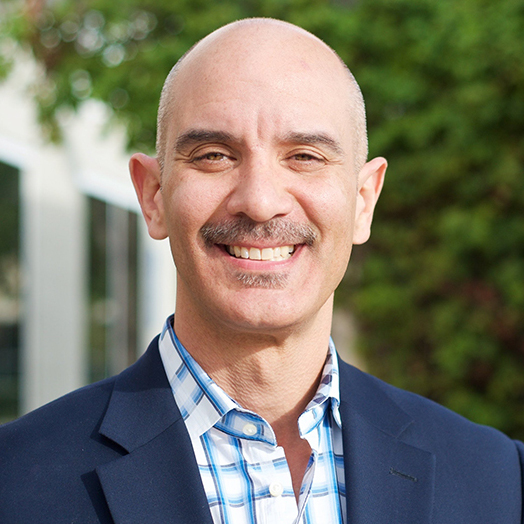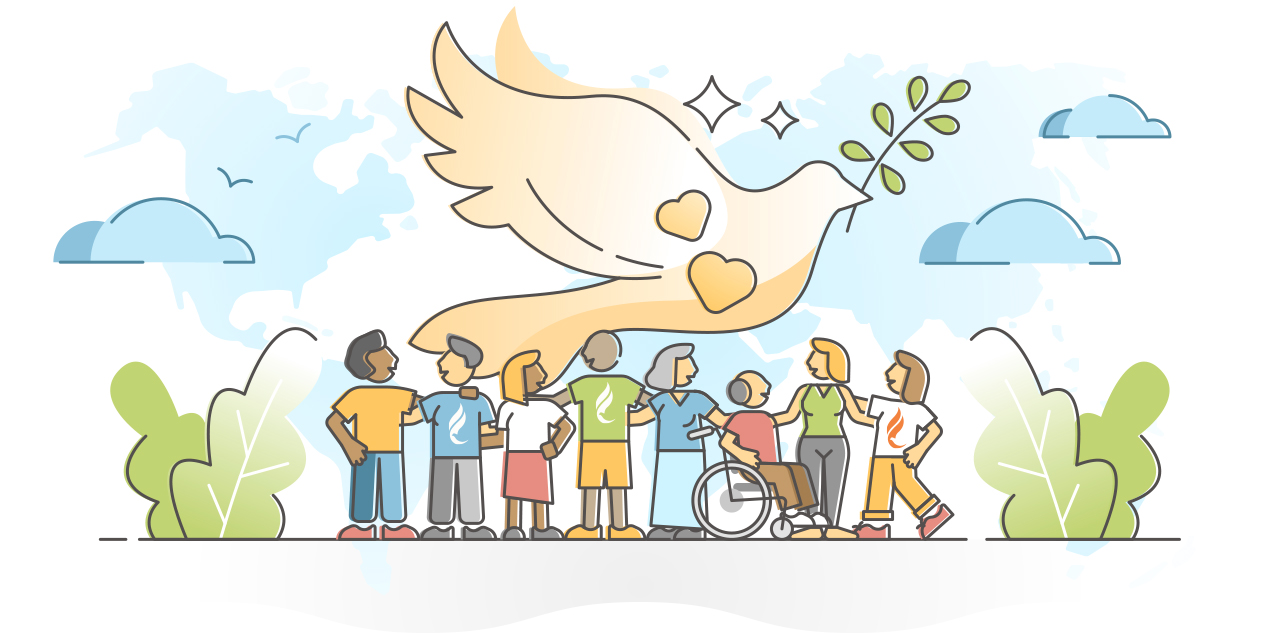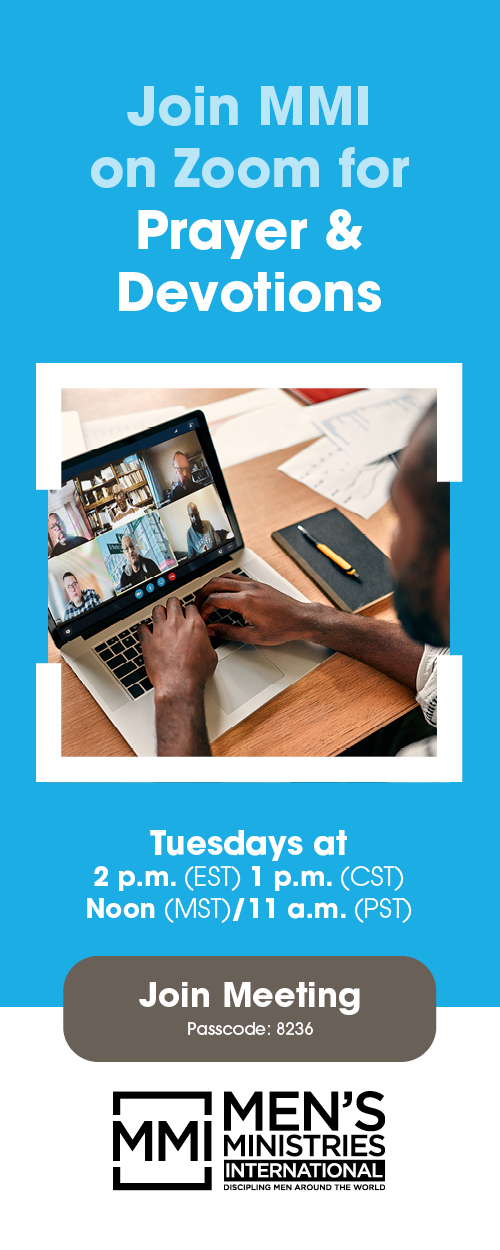
Fraser Venter
Fraser Venter, D.Min., is the strategic catalyst for love-driven justice on the Free Methodist Church USA Executive Leadership Team. He previously served as the lead pastor of Cucamonga Christian Fellowship in Rancho Cucamonga, California, and as a superintendent of the Free Methodist Church in Southern California. He earned his Master of Divinity and Doctor of Ministry degrees at Azusa Pacific University.
By Fraser Venter
As the Strategic Catalyst for Love-Driven Justice, I understand and deeply empathize with the concerns raised by recent legislative actions in Florida that led organizations like LULAC (League of United Latin American Citizens) and NAACP to issue travel advisories to the state. The issues are complex and deserve prayerful and mindful attention. Yet, how do we love, act, pray, minister, partner with those on the ground, and convene as a witness to the power of the gospel even amid a place dealing with ideological tension like Florida?
On the one hand, how do we stand in solidarity with those who may be affected by such legislation, particularly the marginalized? This is entirely consistent with our principles of Love-Driven Justice.
On the other hand, the logistics, contractual obligations, finances, and timelines related to organizing such an important event make the decision more complicated. With the date of the General Conference drawing near, changing the venue would render us unable to convene efficiently the conference at all, which could potentially have significant implications on our denomination’s governance and future direction.
And as I will be attending and participating in this event, I wanted to share some reflections on how I am approaching this moment. I have had to wrestle with the question, “How can I be a good witness of justice, mercy and love in places that others don’t feel safe or accepted?”
_
“We must acknowledge the tension, the tough decisions that need to be made, and the diverse views within our community — and to embrace the middle way.”
_
In essence, we are grappling with a profoundly challenging scenario that requires us to navigate a complex intersection of justice, biblical truths and values, pragmatism, and the realities of organizational logistics. Therefore, in times like these, we must acknowledge the tension, the tough decisions that need to be made, and the diverse views within our community — and to embrace the middle way recently published in Light + Life Communications (see https://lightandlife.fm/navigating-the-middle-path/).
As we face this situation, I want to affirm that all perspectives are being heard, and the underlying concerns are treated with utmost seriousness and care. We are in this together, driven by love and the pursuit of justice.
I recently read, “In these turbulent days of uncertainty, the evils of war and economic and racial injustice threaten the very survival of the human race. Indeed, we live in a day of grave crisis.”
One would think that this “grave crisis” day described our current culture, but the statement written by Martin Luther King Jr. in 1963 is still relevant today (King Jr., Martin Luther. Strength to Love (p. xv). Beacon Press. Kindle Edition).
Beloved, would you agree that we still live in such a time as this? Indeed, this is the proclamation of our national headlines. However, we do not live by headlines, for we are not a people without hope, both now and not yet. Why?
John Wesley, commenting on Matthew 10:16, where Jesus emphatically tells the disciples, “I am sending you out like sheep into the midst of wolves: so be wise as serpents and innocent as doves” (NRSV), stated the following:
“Be ye, therefore, wise as serpents,” while ye are “harmless as doves.” This wisdom will instruct you how to suit your words, and whole behavior, to the persons with whom you have to do, to the time, place, and all other circumstances. It will teach you to cut off the occasion of offense, even from those who seek occasion, and to do things of the most offensive nature in the least offensive manner that is possible (The Works of John Wesley, Third Edition, vol. 6 (London: Wesleyan Methodist Book Room, 1872), 163).
As Free Methodists, we must not forget that we are empowered with wisdom (serpent power) and humility (dove power) when ministering to difficult and complex issues in our culture. And when entering them.
_
“The key to our hope is our engagement with what the Spirit of God is saying and doing to know what involves mindfulness and what involves service.”
_
As Free Methodists, even though what we see reflects the gravity of the crisis, we are reminded that our Savior is an overcomer of what is grave.
The key to our hope is our engagement with what the Spirit of God is saying and doing to know what involves mindfulness and what involves service. What might include prayer, or what requires protest? What involves empathy, and what provides action? What might be the pastoral approach or the prophetic approach? Not that these positions are polarized or independent of each other. And I would suggest they are always best done in some combination; nevertheless, Scripture reminds us that we steward serpent and dove power. And thus, we must be ready to submit to the obedience of the Spirit of God on when, how, who, what, and where to engage with that power.
Martin Luther King Jr. wisely reminds us, “Power without love is reckless and abusive, and love without power is sentimental and anemic. Power at its best is love implementing the demands of justice, and justice at its best is power correcting everything that stands against love.”
We must also remember that we have authority in Christ in addition to the stewarding of power. If power is the capacity/ability to do a thing as a serpent or dove, authority is the right to steward how, why, where, and when we do a thing. And this authority is derived from Jesus, not my gifts or titles. Power is my giftedness or perceived position submitted to Christ’s authority in humble mutuality with others that influence our environments and encounters.
_
“It is not only college campuses that experience renewal or revival.”
_
Imagine almost 2,000 Free Methodists walking with me in alignment with their power and authority. What might happen at our General Conference? What might happen in the state of Florida that reverberates throughout our nation? It is not only college campuses that experience renewal or revival.
Now power and authority in themselves can be both harmful and helpful. Power and authority are great for those working in the fire department to help me in a fire. The power and authority of a surgeon to operate on me precisely is helpful. But an axe or scalpel in the wrong hands of power and authority can be lethal! And thus, we must learn to submit our power and authority to Christ continually and humbly see one another in light of Philippians 2:3-4 (ESV):
“Do nothing from selfish ambition or conceit, but in humility count others more significant than yourselves. Let each of you look not only to his own interests but also to the interests of others.”
Yet, we must also recognize that the church is positioned, including the Free Methodist Church, to have such power and authority that the gates of hell will not prevail against.
Like you, I am sure you have seen the plethora of challenges our nation and local states face, including Florida, the host of our upcoming General Conference. In many ways, Florida mirrors what several states are wrestling with concerning immigration, education, political tension, abuse of power, and the mistreatment of several marginalized communities. So, what does our stewarding of power and authority look like as we enter this space?
_
“I have prayed about our impact.”
_
As I have been praying — as I hope you have — for our upcoming General Conference and the space where nearly 2,000 Free Methodists nationally and globally will be present, I have prayed about our impact.
Here is my list of prayers, and I encourage you to join me.
I pray about how we stand with those who live in Florida long after we are gone, who will be a continual light demonstrating God’s love and goodness.
I pray for those in the Southeast Region Conference who will be ordained after the General Conference to be used by God to demonstrate His power and authority in the community to which they are called to minister the gospel.
I pray about the tough decisions culturally placed before them and us daily. And I pray for the wisdom to know when to be pastoral and when to be prophetic but always to bring His peace.
I pray that peace will be present for those who face natural anxiety by being marginalized. I pray they will be seen and loved.
I pray that the marginalized in our communities will see us as empathetic and engaging, not criticizing and retreating.
I pray for those who would feel unwelcome in any part of our country and that they would never feel abandoned, orphaned, or unloved in the fellowship of Free Methodists.
I pray that we would have eyes, ears, hearts, hands, feet, and minds to discern and act in spreading scriptural holiness to all in both word and deeds.
I pray for the host of our conference location, the Hilton, and all their employees who may come from underserved and marginalized populations that they will experience and see our generosity, grace, service, and witness as we are hospitable to one another while there and to them.
I pray that this beautiful message of freedom in Christ will be heard and seen repeatedly.
I pray that we will be a solid witness of what it means to be a people who once were in darkness but have been called into marvelous light.
I pray we will steward the light of the gospel in places surrounded by darkness — and stand securely with one another in our authority in Christ.
I pray that we, as Free Methodists, would be known by our love that is uncompromised in its biblical foundation but stretched in the complexity of being empathetic to those we are called to reach, support, and include.
I pray about discerning and dismantling the strongholds deeply rooted in the headlines of our culture.
I pray that we remember that no weapon formed against shall prosper and that our authority in Christ will release new freedom throughout the state and nation.
I pray that we/I would know when to be the serpent and when to be the dove — and how to steward in grace and love that power in His authority.
And I pray for our Free Methodist family that we do not forget we are people called to be holy and holy invasive. To love without compromise and to be counted as courageous when the culture continues to cry out in disunity, pain, and loss. To not be afraid of His love, our love that will produce a fruit that changes hearts, systems, and even headlines.
I pray that as we gather at GC as a diverse multiethnic Free Methodist Church, the world will see what it means to demonstrate love, honor, justice, peace, and unity.
I pray and will continue to pray that Holy Spirit will give strategy to our FM churches around the nation and globe that now is the time not to retreat from the grave crisis of our world but to introduce the One who conquered the grave, sin, and death.
I pray that we would be a Free people in Christ so that all of God’s children would experience this same freedom now and not yet.
Holy Spirit, now go before us, work in us, and love through us as we enter this sacred time not just to do business but to see the places we dwell changed by the goodness of our God in the land of the living.
The Holy Spirit brings a spiritual awakening in and through the church as she gathers in Florida that we would bring the message of the Kingdom in power, authority, and presence.
I pray Ephesians 1:17–21 (NRSV):
“I pray that the God of our Lord Jesus Christ, the Father of glory, may give you a spirit of wisdom and revelation as you come to know him, so that, with the eyes of your heart enlightened, you may know what is the hope to which he has called you, what are the riches of his glorious inheritance among the saints, and what is the immeasurable greatness of his power for us who believe, according to the working of his great power. God put this power to work in Christ when he raised him from the dead and seated him at his right hand in the heavenly places, far above all rule and authority and power and dominion, and above every name that is named, not only in this age but also in the age to come.”
And I pray all these things in the name of our God of peace, mercy, justice, and love.
Amen
Fraser Venter
Strategic Catalyst for Love-Driven Justice
“Justice is not just a temporal problem seeking temporal solutions but a spiritually formed calling both individually and communally bringing a spiritual solution, Jesus.”
+
Comments:
Pastor Fraser, thank you so much for this article. I am glad to be able to attend the focus group on Love Driven Justice this week.
A conviction of mine is that it is important to bring injustice into the light, because we cannot help change those injustices of which we are not aware. As a pastor and professor, I am lamenting wording in Florida’s social studies standards:
“Instruction includes how slaves developed skills which, in some instances, could be
applied for their personal benefit. “
https://www.fldoe.org/core/fileparse.php/20653/urlt/6-4.pdf
Praying for change, and hoping to be able to be part of change in whatever ways God brings. Thankful for love-driven justice.
Thank you so much.
Sincerely,
Jenny

Fraser Venter
Fraser Venter, D.Min., is the strategic catalyst for love-driven justice on the Free Methodist Church USA Executive Leadership Team. He previously served as the lead pastor of Cucamonga Christian Fellowship in Rancho Cucamonga, California, and as a superintendent of the Free Methodist Church in Southern California. He earned his Master of Divinity and Doctor of Ministry degrees at Azusa Pacific University.









